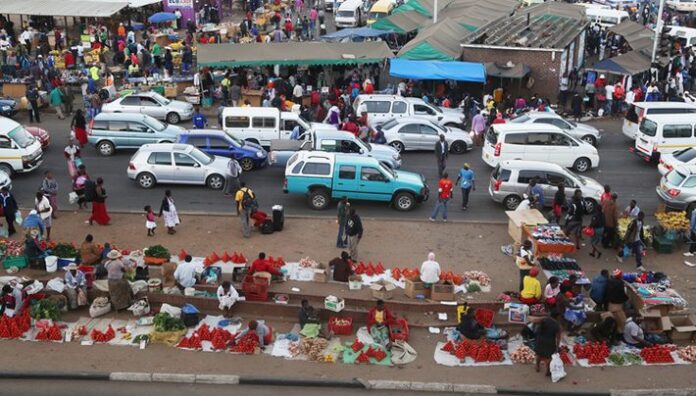A recent study by El-bouayady, R., & Radoine, H. (2023) titled “Urbanization and Sustainable Urban Infrastructure Development in Africa” published in Environment and Ecology Research by Horizon Research Publishing, examines the effect of urbanization and urban growth on sustainable urban infrastructure development in Africa.
“
Infrastructure overload, lack of investment, deficiency & inadequacy are the primary impedements to sustainable development of urban infrastructure in Africa. – El-bouayady, R., & Radoine, H. 2023
This article explores the challenges and opportunities of urbanization and sustainable urban infrastructure development in Africa. The study provides statistics and projections on the population growth, urbanization rate, and economic development of Africa and also explains how urbanization affects the urban system and the demand for basic services. The authors define urban infrastructure as the provision of energy, transport, water, sanitation, and ICT to industries and households. The authors also argue that urban infrastructure is key to achieving environmental, social, and economic sustainability in cities. This insightful study sheds light on the gap between the current urbanization trend and urban infrastructure development in Africa and identifies the main challenges that urban infrastructure faces in terms of overload, lack of investment, deficiency, and inadequacy. The study proposes some possible solutions and recommendations to address the challenges and improve the sustainable development of urban infrastructure in Africa.
Challenges of urbanization and urban growth on sustainable urban infrastructure development in Africa
Energy challenge: The study shows that urbanization increases energy demand, but Africa has low access to energy resources and services. The urban population consumes more than 75% of the total energy but only accounts for 6% and 3% of the global energy and electricity demand, respectively.
Transport challenge: The authors posit that urbanization leads to more traffic congestion, pollution, and accidents, but Africa has inadequate and inefficient transport infrastructure and services. The urban transport system is dominated by informal and unregulated modes, such as minibuses and motorcycles.
Water and sanitation challenge: The articles explore that urbanization puts pressure on the water supply and sanitation systems, but Africa faces water scarcity, poor water quality, and low coverage of sanitation facilities. The urban population suffers from waterborne diseases, flooding, and environmental degradation.
ICT challenge: Urbanization creates opportunities for digital innovation and connectivity, but Africa has low access to ICT infrastructure and services. The urban population lacks affordable and reliable internet, mobile phones, and computers.
Findings of the Study
The study explores the effect of urbanization and urban growth on sustainable urban infrastructure development on the African continent, thereby highlighting the discrepancy between the current urbanization trend and urban infrastructure development in the African region. The authors identify three main challenges that impede the sustainable development of urban infrastructure in Africa, which include infrastructure overload, lack of investment, deficiency, and inadequacy. In addition, the authors propose multiple approaches and actions to meet the sustainable development of urban infrastructure in Africa. The author’s approaches include adopting a holistic and integrated approach to urban planning and management, enhancing the governance and institutional capacity of urban authorities, mobilizing financial resources and promoting public-private partnerships, fostering innovation and technology transfer, and strengthening regional and international cooperation.
Implications of the study
The study provides a comprehensive assessment of the current state and future trends of urbanization and urban infrastructure in Africa, covering the energy, transport, water, sanitation, and ICT sectors. The article highlights the discrepancy between the urbanization rate and urban infrastructure development in Africa, which results in infrastructure overload, lack of investment, deficiency, and inadequacy. The authors suggest multiple approaches and actions to address the urban infrastructure challenges and achieve sustainable development goals, such as enhancing governance, financing, planning, innovation, and participation.
It contributes to the knowledge and policy debate on urbanization and urban sustainability in Africa and offers insights and recommendations for urban practitioners, researchers, and decision-makers.
Recommendations
- The study suggests that Africa has a huge potential for renewable energy sources such as solar, wind, hydro, and geothermal power. These sources can reduce greenhouse gas emissions, increase energy security, and create jobs.
- The authors argue that urban planning and governance are essential for managing urban growth, reducing urban sprawl, and enhancing the efficiency and quality of urban services. Therefore, the study suggests that urban planning should involve participatory and inclusive approaches, as well as coordination and integration among different sectors and levels of government.
- The authors emphasize that urban infrastructure and innovation are key drivers of economic growth and social development. Investing in urban infrastructure and innovation can improve the accessibility, affordability, and reliability of urban services, such as transport, water, sanitation, and ICT. It can also foster creativity, productivity, and competitiveness in urban areas.
- The study warns that urban areas are vulnerable to various shocks and stresses, such as climate change, natural disasters, conflicts, and pandemics. Therefore, strengthening urban resilience and adaptation can help urban areas cope with and recover from these challenges, as well as reduce their exposure and sensitivity to future risks.
In conclusion, El-bouayady and Radoine’s study provides a comprehensive analysis of the intricate relationship between urbanization and sustainable urban infrastructure development in Africa. By highlighting challenges in energy, transport, water, sanitation, and ICT, the authors underscore the urgent need for holistic approaches and strategic actions. The findings stress the importance of innovative solutions, participatory urban planning, and investment in renewable energy to bridge the existing gaps. As urban areas face vulnerabilities, the study serves as a crucial resource, offering valuable insights and actionable recommendations to guide policymakers, researchers, and urban practitioners toward a more sustainable and resilient future for African cities.
















 The African Research (AR) Index is a comprehensive scholarly directory and database focused explicitly on journal publishers that publish and disseminate African research.
The African Research (AR) Index is a comprehensive scholarly directory and database focused explicitly on journal publishers that publish and disseminate African research.

